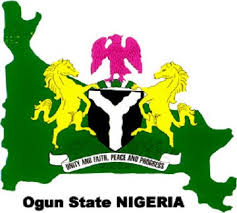Business
OGUN: LOCAL GOVERNMENT ELECTION AND IGR By Michael-Azeez Ogunsiji
Published
8 years agoon

Democracy in Nigeria today, is no longer peoples oriented as opined by the progenitors of this concept; rather, what we have now is AUTOCRACY where only the few enjoy the dividends through the workforce of the majority and amass wealth for their selfish interest and personal gain.
Few months back, there was much ado about the establishment of additional 37 LCDAs by Governor Ibikunle Amosun of Ogun State as the development was greeted with mixed reactions.
While many argued that, the establishment of such would only further impoverish the state owing to the fact that the existing 20 Local Government Authority were inadequately funded, government hinged its claim on bringing development to the grassroot.
Though, the intention of Governor Amosun was political, but of course, bringing government to the doorstep of the people will aid development, no doubt about that, our fear of the LCDAs is inadequate funding in this situation that the state government has taken over the Local Government account all in the name of Single Treasury Joint Account. I make bold to say that, such move was a ruse and will only hamper the activities of the Local government.
A local government is a local administration under which local communities are organized to maintain law and order. It is also defined as a non-self governing body set up by an act of Parliament, a decree, or by the Constitution to administer a territory or a political entity for the benefit of a stronger government which normally cannot or does not want to rule the area directly.
Local Governments have been described as “the strength of free nations” because of their effective control of Local affairs for the good of all.
Local Government in traditional Nigerian political systems was established through the instrumentalities of traditional authorities. These were Emirs, Obas, Chiefs, Age-grades and Council of elders. It was the societal interaction of these traditional political institutions that authoritative allocation of values were made for the society. With the advent of British colonial rule in Nigeria, the chieftaincy institutions were involved in the system of Local government called the indirect rule.
Indirect rule is a system of government in which the British ruled the people through traditional rulers according to the native laws and customs. When the indirect rule collapsed due to the Aba women riot in 1929, local government after the civil war underwent reforms in Nigeria.
The Eastern (East Central and South-eastern states) and Mid-Western states adopted a one-tier local government system called Divisional Councils. In the local divisions, emphasis was placed on decentralization, democratization, efficiency and effectiveness of the councils.
However, as the Federal military government prepared to hand over power to civilians, it reformed the local government system throughout the country in 1976. It recognized local governments as the third tier of government.
The 1976 reform was intended to stimulate democratic self-government and to encourage initiative and leadership potential and enshrine the principle of political responsibility. But today in Ogun State, Governor Ibikunle Amosun administration doesn’t give a damn to the existence of Local government authority.
Instead of empowering the 20 local governments with their respective allocations to effectively discharge its obligation to the people, the APC administration in Ogun State has crippled the LG with inadequate fund, but created additional 37 LCDAs to serve his selfish objectives.
With such inappropriate establishment, one begin to wonder how the governor will finance them considering the low income of Federal allocation for local government.
Even in the face of the global economy doldrums which Nigeria is not an exception to, definitely such effect will take its toll on federal allocation to State governments down to local government, that is why local government administrators have been constitutionally empowered to generate revenue to execute its projects.
Local governments in Nigeria derive their revenue from internally generated revenue, statutory allocation from states, constitutional allocation from the federal government account, grants, donations and advances from banks.
Part of the internally generated revenue of the local government include; rates imposed on the use of specific items whether individually or government owned. These rates include water rate, tenement rate, capitation rate and motorcycle rate.
Another means of generating fund by the local government to remain independent is motor Park and stallage fees. Others include, registration of births, marriages, deaths and house numbering. But today, Governor Amosun in his megalomania style of leadership overthrew the responsibility of the local government and rendered them stagnant and under performing
The motor Park fees is now being collected by the governor’s political thug, Mr. Akeem Adeosun a.k.a Jango, while house numbering and signages fee collection is now being handled by a private agency connected to the governor.
Little wonder the rural settlers are deprived of the basic amenities expected from the local government such as, road maintenance, refuse clearing, provision of portable water like borehole, environmental sanitation, public enlightenment on new government policies, provision of health facilities, job creation, provision of primary education among others.
Infact, allocation from both federal government account and state government as approved by the State House of Assembly are now allegedly being controlled by Mr. Governor himself.
Though, one valid claim from one of the Governor’s aides was that, there were allegations and counter allegations on the local government leadership ranging from financial misappropriation, under performance and financial embezzlement, but one critical question the good people of Ogun State should ask Mr. Governor or any of his spokespersons is that, why is it that the Federal government has not taken over the affairs of the state despite allegations of corruption, misplaced priority projects? Why is Ogun State Government taking over LG activities in Ogun?
Another heart pondering issue on the shredded part of the LG is the issue of local government elections. One of the basic features of the 1976 local government reform in Nigeria is tenure of office.
The local government councilors are to be elected on a three-year basis. The normal life of a local government Council is also three years, although, the governor of a state could order the dissolution of the council if found incapable of discharging its functions effectively. The Governor may appoint a caretaker committee pending a fresh election. But after one year in office and the dissolution of the local government caretaker committee across the 20 functional Council areas, no plan as it is by the state government to conduct an election into the council areas.
The Governor’s decision of not conducting local government election in the state maybe connected to public outcry over the failed promises and hardship inflicted on the people by the APC government in the state, hence, the fear of losing the council areas to oppositions in the state remain the beginning of wisdom for the governor.
However, the constitution remains the grundnom for governance in Nigeria, and many informed political analysts are of the opinion that the Governor Ibikunle Amosu led regime cannot afford to run foul of constitutional provisions on tenure of caretaker executives at the local government and as such must prepare to hold elections soonest in consonance with extant constitutional provisions.
Related
Sahara weekly online is published by First Sahara weekly international. contact saharaweekly@yahoo.com

You may like
Business
Integrated System and Devices Limited Achieves IMS Certification
Published
21 hours agoon
May 6, 2024
Integrated System and Devices Limited Achieves IMS Certification
Integrated System and Devices Limited (ISDL), a major provider of electronic security solutions, is delighted to announce the successful attainment of ISO 14001:2015 and ISO 45001:2018 certifications following a rigorous audit process conducted by Bureau Veritas Certification Holdings SAS-UK Branch.
In 2021, ISDL bagged the Quality management systems ISO 9001:2015, and now in 2024, with unwavering dedication to customer satisfaction, the occupational Health and Safety system ISO 45001:2018 and the Environmental management system ISO 14001:2015 have been consolidated to form an Integrated Management System.
These certifications, covering ISDL’s headquarters and branches, signify the company’s unwavering commitment to upholding the highest standards of quality management across all facets of its operations. According to Engr. Oluseun Mabogunje, the Managing Director of ISDL, the scope of the certifications encompasses the design, procurement, supply, installation, integration, maintenance, and after-sales support of various electronic security and Extra Low Voltage (ELV) equipment.
Engr. Mabogunje expressed his elation at receiving the IMS certifications, emphasizing ISDL’s dedication to delivering exceptional quality and service to its clientele. He emphasized that this achievement underscores the company’s ongoing pursuit of continuous improvement and customer satisfaction.
ISO 9001:2015, ISO 14001:2015, and ISO 45001:2018 are internationally recognized standards for Quality, Occupational Health & Safety and Environmental management systems, emphasizing a process-based approach to meeting customer requirements and enhancing satisfaction, protecting the environment and also providing safe and healthy working conditions to prevent work-related injuries and illnesses among our employees, contractors and visitors. ISDL’s certification demonstrates its ability to consistently provide products and services that not only meet regulatory requirements but also exceed customer expectations.
Engr. Mabogunje extended profound gratitude to the workforce for their contribution to this achievement, attributing it to their team spirit and unwavering dedication to hard work, resilience and excellence. He urged the staff to continue offering top-notch services to their clients.
About Integrated System and Devices Limited (ISDL):
Integrated System & Devices Limited (ISDL), incorporated in 1988, is a leading provider of Electronic Low Voltage(ELV) and Security systems, that provides a total turnkey service for the design, supply, installation and continued effectiveness of security systems for medium and high-risk locations. ISDL has over 30 years’ history in the delivery of professional electronic security services in integration, maintenance and after sales support of various electronic security and related equipment. ISDL has her head Office in Lagos, and two branch offices in Abuja and Port Harcourt, Nigeria.
For more information about ISDL, please visit www.isdlnig.com
Related
Business
ZENITH BANK SHOWS CONTINUED MARKET LEADERSHIP WITH 189% GROWTH IN Q1 EARNINGS
Published
1 day agoon
May 6, 2024
ZENITH BANK SHOWS CONTINUED MARKET LEADERSHIP WITH 189% GROWTH IN Q1 EARNINGS
Zenith Bank Plc has announced its unaudited results for the first quarter ended 31st March 2024, with an impressive triple-digit growth of 189% in Gross Earnings, from ₦270 billion reported in Q1 2023 to ₦781 billion in Q1 2024. This is despite the challenging operating environment and tightening monetary policy stance.
From the unaudited statement of account submitted to the Nigerian Exchange (NGX) on Friday, 3rd May 2024, this impressive growth in the topline also enhanced the bottom line, as profit before tax (PBT) rose to ₦320 billion in Q1 2024, representing an increase of 270% from the ₦87 billion reported in Q1 2023. Profit after tax (PAT) equally grew significantly by 291% from the ₦66 billion reported in Q1 2023 to ₦258 billion in the current period.
Interest and non-interest income contributed significantly to the growth in gross earnings. Interest income grew by 155% from the ₦192 billion reported in the quarter ended March 2023 to ₦489 billion in the period to 31 March 2024. The growth in interest income is due to the repricing of risk assets, owing to the increase in the central bank’s Monetary Policy Rate (MPR), which currently stands at 24.75%. The growth in net interest income is primarily due to the increase in fees and commissions as well as trading grains.
The Group reported an impairment charge of ₦56 billion for Q1 2024, up from ₦8 billion recorded in Q1 2023. This is attributable to significant growth in risk assets, primarily driven by the revaluation of its USD loans, which necessitated additional impairment on the bank’s foreign currency-denominated loans.
The cost of funds grew by 48% from 2.7% in Q1 2023 to 4% in Q1 2024 due to the high-interest rate environment, while interest expense increased by 157% from ₦71 billion reported in Q1 2023 to ₦182 billion in the period to March 2024. Notwithstanding the year-on-year (YoY) increase in interest expense, net interest margin (NIM) grew by 20% from 6.9% in the 3 months ended March 2023 to 8.3% in the current period ending 31 March 2024. Return on Average Equity (ROAE) and Return on Average Assets (ROAA) increased year-on-year (YoY) by 114% and 119%, respectively, due to improved profitability.
Gross loans, which are largely funded by customer deposits, grew by 30% from ₦7.1 trillion in December 2023 to ₦9.2 trillion in March 2024. Customer deposits also grew by 11% from ₦15.2 trillion in December 2023 to ₦16.8 trillion in March 2024, underpinning continued customer confidence in the Zenith brand. Total assets increased by 19% to ₦24 trillion within the same period.
The Group has consistently maintained all prudential ratios well above the minimum regulatory requirement. At the end of Q1 2024, Capital Adequacy Ratio (CAR) and Liquidity Ratio stood at 20% and 67%, respectively, demonstrating the Group’s ability to maintain a strong and liquid balance sheet.
The Group is making progress on the planned capital raise to support future growth and is very optimistic about meeting the new minimum capital requirements in line with the CBN’s recapitalisation directive. As the Group accelerates migration to its new technology architecture and also transitions into a holding company, it remains poised to maximise value for all stakeholders.
Related
Business
Festus Keyamo and His Brand Of Administrative Activism* By Philip Agbese
Published
2 days agoon
May 5, 2024
*Festus Keyamo and His Brand Of Administrative Activism*
By Philip Agbese
Festus Keyamo, the enigmatic figure at the helm of Nigeria’s aviation sector, has been a subject of both admiration and controversy. His unconventional approach to governance has polarised opinions, with some hailing him as a visionary leader and others questioning his methods. As the Aviation Minister, Keyamo has been unapologetically vocal about his commitment to reforming the industry, but his fervour for change has often been met with scepticism and resistance.
Of truth, one can not discuss Festus Keyamo without acknowledging his unyielding dedication to Nigeria. His admirable cockiness and unwavering patriotism and willingness to stand up for what he believes in are undeniable. Keyamo’s refusal to conform to the traditional norms of governance has earned him both admirers and detractors. Some argue that his zealousness is a breath of fresh air in a landscape rife with bureaucratic red tape, while others caution that his approach may be too radical for the delicate political ecosystem of Nigeria.
Being a proponent of grassroots empowerment, he believes that the voices of ordinary citizens must be heard in the corridors of power. To this end, he has worked tirelessly to mobilise communities, educate citizens on their rights, and empower them to demand better governance. Keyamo’s grassroots activism has inspired many Nigerians to take a more active role in shaping the country’s political future.
Festus Keyamo’s brand of administrative activism is not for the faint of heart. His willingness to challenge the status quo and push the boundaries of conventional governance is both commendable and disconcerting. While some laud his boldness, others fear that it may lead to unintended repercussions. Keyamo’s unapologetic stance has drawn comparisons to other historical figures who were willing to sacrifice everything for their ideals.
However, it is essential to consider the lessons from history. Keyamo’s determination to die for Nigeria, while admirable, should be tempered with caution. The case of Muammar Gaddafi serves as a cautionary tale. Gaddafi’s desire to die for Africa ultimately led to his downfall, as he was betrayed by his people.
Keyamo must be mindful of the potential consequences of such extreme rhetoric and ensure that his actions align with the best interests of the Nigerian people. It is crucial to tread carefully when treading such uncharted territory, especially in a country as complex and volatile as Nigeria.
Keyamo’s purported readiness to “die for Nigeria” is a testament to his unwavering commitment, but it also raises concerns about the potential consequences of such uncompromising dedication. History is replete with examples of individuals who staked everything on their convictions, only to face betrayal and disillusionment. It is a cautionary tale that should not be dismissed lightly.
Due to his fearlessness in the face of adversity, another facet of Keyamo’s administrative activism is his commitment to the rule of law, and this has earned him more political enemies than friends. He firmly believes that all individuals, regardless of their status or wealth, should be subject to the same legal standards. Throughout his career, he has faced numerous challenges and threats due to his outspokenness and activism.
Keyamo has been a vocal advocate for judicial reform in Nigeria, pushing for greater independence and efficiency in the country’s legal system. Despite these obstacles, Keyamo has remained steadfast in his commitment to social justice and human rights. His courage and determination have inspired many others to join him in the fight for a more just and equitable society. His efforts have helped to strengthen the rule of law and ensure that justice is served fairly and impartially.
The call for Keyamo to ”wake up” and recognise the realities of Nigeria is a poignant one. The complexities of the Nigerian political landscape can not be underestimated, and Keyamo needs to navigate these intricacies with prudence. While his passion for Nigeria is unquestionable, this fervour must be tempered with a deep understanding of the nuanced challenges facing the nation. An understanding of the fact that sources of progressive change and growth like his are mostly suffocated to die prematurely, or attacked ferociously till they fade into oblivion should be something he must have to consider seriously in his journey.
Setting aside the fervour surrounding Festus Keyamo’s zealousness, it is crucial to examine his impact as the Aviation Minister. His reforms in the sector have been both ambitious and divisive. Keyamo’s efforts to modernise and revitalise Nigeria’s aviation industry have been met with a mixed reception. While many applaud his bold initiatives, others express apprehension about the potential pitfalls of such rapid change. It’s not farfetched that the latter are people who have a penchant for the continuity of rascality and corruption, which have bedevilled the aviation sector for a long time.
Moving beyond Keyamo’s convictions, it is crucial to note that, during his tenure, Keyamo implemented several reforms aimed at improving the aviation sector in Nigeria. These reforms have had a significant impact on various aspects of the industry, including safety standards, infrastructure development, and operational efficiency.
One of Keyamo’s notable achievements was the introduction of stricter safety regulations. Under his leadership, the Aviation Ministry implemented measures to enhance safety protocols, ensuring that Nigerian airports and airlines adhere to international standards. This has not only improved the safety of air travel within the country but has also bolstered Nigeria’s reputation in the global aviation community.
Furthermore, Keyamo prioritised infrastructure development in the aviation sector. He spearheaded projects aimed at expanding and modernizing airports across the country, improving connectivity and facilitating economic growth. These infrastructure investments have not only enhanced the travel experience for passengers but have also attracted foreign investment and boosted tourism.
Keyamo’s reforms also focused on improving operational efficiency within the aviation sector. He introduced measures to streamline processes, reduce bureaucracy, and enhance transparency. These efforts have resulted in smoother operations, reduced delays, and improved customer service, benefiting both passengers and industry stakeholders.
It is important to acknowledge that Festus Keyamo’s vision for Nigeria’s aviation sector is driven by a genuine desire to propel the nation towards progress. His determination to address longstanding issues and overhaul outdated practices is a testament to his commitment to effect positive change. However, the path to reform is fraught with challenges, and Keyamo must navigate these obstacles with caution and foresight.
While his unwavering commitment to Nigeria is commendable, he must be cautious of the lessons from history and ensure that his actions align with the best interests of the Nigerian people. As the Aviation Minister, Keyamo has implemented significant reforms that have positively impacted the aviation sector. His focus on safety, infrastructure development, and operational efficiency has yielded tangible results, improving the travel experience and bolstering Nigeria’s reputation in the global aviation community.
Time will be kind to tell us how Festus Keyamo’s legacy will be one of the unyielding triumphs in the annals of Nigeria’s history. Generations will look back in time to remember that man who worked great wonders in the aviation sector, leaving so much for us to gain from his stewardship in the aviation sector.
As the nation continues to navigate its challenges, leaders like Keyamo must strike a delicate balance between passion and pragmatism, ensuring that their efforts lead to sustainable and inclusive development for all Nigerians.
Agbese MHR is the Deputy Spokesperson, 10th House of Representatives writing from Abuja.
Related
Cover Of The Week

- Dotmount Communications to Host Middle East Investors Expo in Abuja, Targets $20 Billion Investment Windfall May 6, 2024
- Blitzboks edged into sixth by Argentina in Singapore May 6, 2024
- Africa Hospitality Magazine now available in English May 6, 2024
- Free State earn first win as Bulls and Boland continue dominance May 6, 2024
- Three-Wheeler Financing for Cleaner Vehicles Unveiled in Tanzania May 6, 2024
- Islamic Development Bank Group Announces Winners of Private Sector Forum Awards 2024 Recognizing Excellence in Islamic Finance and Development Initiatives May 6, 2024
- Winning starts on the road to England 2025 for South Africa and Madagascar May 6, 2024
- Changes to Springbok Women team for Kenya May 6, 2024
- Africa Women Innovation and Entrepreneurship Forum (AWIEF) Celebrates a Decade of Women's Entrepreneurship at the 2024 Conference and Awards in Cape Town May 6, 2024
- Fostering Inclusive Growth: African Development Bank and Invest in Africa unveil MicroGREEN Project to Empower Marginalized Groups May 6, 2024
- Dotmount Communications to Host Middle East Investors Expo in Abuja, Targets $20 Billion Investment Windfall May 6, 2024
- Blitzboks edged into sixth by Argentina in Singapore May 6, 2024
- Africa Hospitality Magazine now available in English May 6, 2024
- Free State earn first win as Bulls and Boland continue dominance May 6, 2024
- Three-Wheeler Financing for Cleaner Vehicles Unveiled in Tanzania May 6, 2024
- Islamic Development Bank Group Announces Winners of Private Sector Forum Awards 2024 Recognizing Excellence in Islamic Finance and Development Initiatives May 6, 2024
- Winning starts on the road to England 2025 for South Africa and Madagascar May 6, 2024
Trending
-

 celebrity radar - gossips5 months ago
celebrity radar - gossips5 months agoTripple Celebration, As AAS CEO, Jesam Micheal Emerges Fintech Expert of The Year, Launches Lounge
-

 celebrity radar - gossips4 months ago
celebrity radar - gossips4 months agoJesam Micheal the philanthropist, Clears the Hospital Bills of UGEP Patients, Put Smiles On Faces Of Orphanages, Police (video)
-

 Business3 months ago
Business3 months agoFintech Guru, Jesam Micheal Opens Biggest Apple Store In Africa, Reveals Why
-

 Business4 months ago
Business4 months agoFintech Guru, Jesam Micheal Opens Biggest Apple Store In Lagos On Saturday (Video)









You must be logged in to post a comment Login